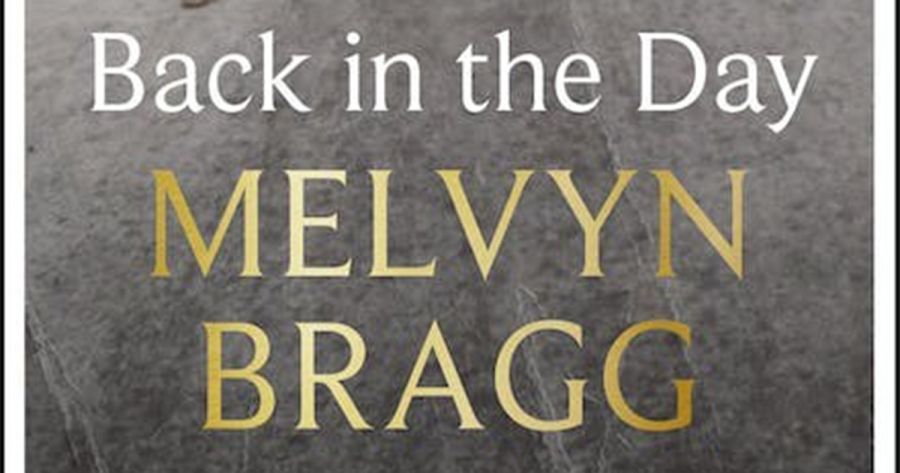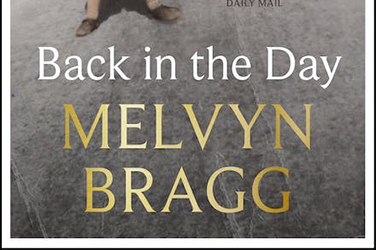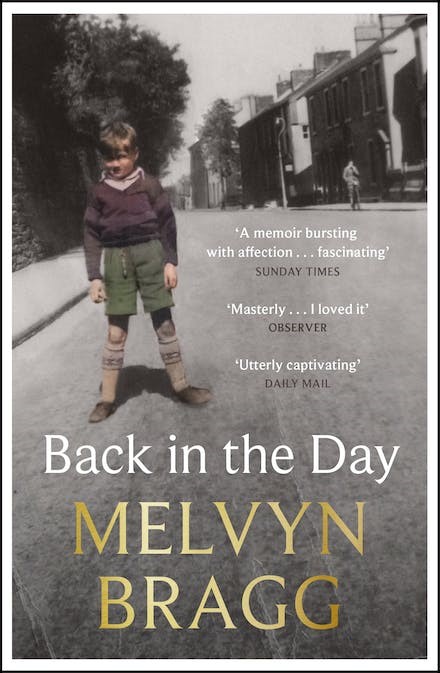
- Free Article: No
- Contents Category: Memoir
- Review Article: Yes
- Article Title: Melvyn’s getting of wisdom
- Article Subtitle: Memoirs of a Cumbrian lad
- Online Only: No
- Custom Highlight Text:
Melvyn Bragg has been a British cultural polymath since he more or less drifted into arts broadcasting after coming down from Oxford more than six decades ago. His own longevity (he is now eighty-three) is reflected in his two most enduring series. The first is In Our Time, a BBC Radio 4 discussion series and podcast that has been running for a quarter of a century. The second was The South Bank Show, whose more than 700 episodes were screened on the ITV television network from 1978 to 2010; from 2012 it has been running on Sky Arts. Bragg, as its editor and presenter, profiled many cultural giants: from Paul McCartney and Laurence Olivier to Marlene Dietrich and Dusty Springfield.
- Featured Image (400px * 250px):

- Alt Tag (Featured Image): Michael Shmith reviews 'Back in the Day: A memoir' by Melvyn Bragg
- Book 1 Title: Back in the Day
- Book 1 Subtitle: A memoir
- Book 1 Biblio: Sceptre, $34.99 pb, 406 pp
- Book 1 Cover Small (400 x 600):

- Book 1 Cover (800 x 1200):

Melvyn, the only child of Stan and Ethel Bragg, was named after one of his mother’s favourite film stars, Melvyn Douglas: ‘A name as alien to Wigton as Tyrannosaurus Rex.’ When Melvyn was eight, his father moved the family from their council house to a pub down the road, the Black-A-Moor. Here, for the next ten years, Melvyn lived in a tiny bedroom above the shop.
The first half of Back in the Day goes along conventional rails: a childhood, boyhood, and youth spent in cinemas, classrooms, and choir stalls (astoundingly, Wigton, with a population of just 5,000, had a dozen churches) or forming a gang of local pals intent on raiding orchards for oranges plucking conkers from tall trees, or building secret caves by the banks of the River Wiza. But darker secrets pervade the story, such as when young Melvyn discovers his maternal grandmother, who died when he was six, was, in fact, a foster-carer for Ethel, who was illegitimate and therefore ‘spoiled goods from birth’.
Then, abruptly, when Melvyn was around thirteen, he saw the light – a ‘reflection of nothing … a thing in itself’ – shining in the corner of his bedroom. It was all in his mind, and it terrified him, sapping him of energy and purpose. This, the equivalent of a nervous breakdown, led Melvyn to ‘behave badly’. His grammar-school grades plummeted and he was almost expelled. ‘If I knew anything, it was that I had to make a new life,’ he writes.
He faced his challenges, but with some help. Over the next two years, Melvyn, by now in upper school and in long trousers, gained that sense of purpose, sparked by two of his teachers: the headmaster, Mr Stowe, and the head of history, Mr James. Simply, the two men, determined to get the best out of their pupils, encouraged them, believed in them and, in the process, transformed the school. Mr James saw something in Melvyn that led him to persuade Stan Bragg to allow his son to ‘stay on’ and go into the sixth form. Years later, Mr James would recall to Melvyn how he and Stan simply shook hands, ‘rather as if we’d concluded a treaty’.
It is simplistic to say that, from that moment, Melvyn’s life was transformed. But his getting of wisdom was not just a matter of learning by rote, but a more complex methodology. As he writes: ‘Knowledge had bitten in deeply. Acquiring knowledge was living life as it should be lived … It was not so much to pass exams, it was to know more and discover that knowing more was the meaning of life.’ Melvyn’s result were so good, he was persuaded to apply for Oxford. It was successful, and even made the Cumberland News: ‘Wigton Boy Gets Scholarship to Oxford’. To Wadham College, to be exact, which Melvyn is saving for volume two. I can’t wait.
By the final page of volume one, Melvyn is still tentative about his future, still coming to terms with breaking out of the chrysalis of home and hearth. And what of his happy relationship with a local girl, Sarah? His last sentence – ‘I would go. But I would never leave’ – indicates a decision, but one in which all sorts of conditions applied.
In revealing his first eighteen or so years, Melvyn Bragg has utilised his heart and his mind with balance and skill. The novelist in him is not afraid to extemporise where necessary, notably in passages of dialogue (say, between his parents) that he could not have witnessed, but only imagined. But the clearest voice is that of his inner child, the one with innate and insatiable curiosity about his own past. It is that voice that resounds and informs and takes the reader by his side for every stage of his early journey.


Comments powered by CComment